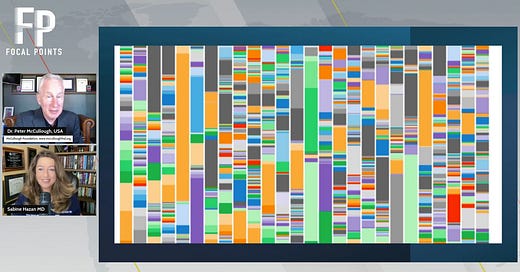By Peter A. McCullough, MD, MPH
AI tells us that DEI, or Diversity, Equity, and Inclusion, refers to a set of principles and practices aimed at creating a fair and welcoming environment where everyone feels valued and has equal opportunities, regardless of their background.
We learn on this episode of FOCAL POINTS that diversity is very important for our microbiome known as the collection of microorganisms (bacteria, viruses, fungi, and protozoa) that live in the human body. The microbiome is present in various parts of the body, including the gut, skin, mouth, lungs, and reproductive organs. Far and away the largest mass of microbiome resides within the gastrointestinal tract.
The microbiome plays crucial roles in maintaining health, such as:
Digesting food
Producing essential nutrients
Regulating the immune system
Protecting against infections
Interfacing with the nervous system
Changes over time:
The microbiome can change over time due to factors like diet, lifestyle, medications, illnesses, and age.
Importance:
An imbalance in the microbiome can contribute to various health conditions, including obesity, diabetes, autoimmune diseases, and possibly neuropsychiatric disease such as autism spectrum spectrum disorder.
Listen to this episode with a 7-day free trial
Subscribe to FOCAL POINTS (Courageous Discourse) to listen to this post and get 7 days of free access to the full post archives.












